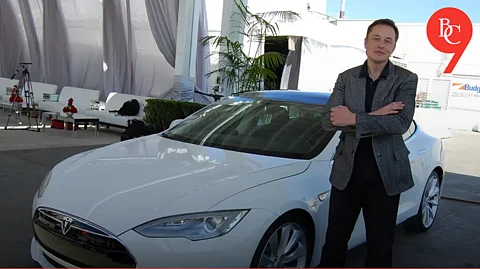

Tesla is exploring contract manufacturing options as part of its entry strategy. The electric vehicle (EV) giant is currently in discussions with both a Japanese automaker and an Indian car manufacturer to utilise their spare production capacity. This approach aims to facilitate a quicker and more cost-effective market entry without the immediate need for establishing a manufacturing plant in India.
Tesla plans to initially import its vehicles as completely built units (CBUs) while negotiating partnerships with local manufacturers. This strategy allows Tesla to bypass the high capital expenditure associated with setting up a greenfield manufacturing facility, which would require a minimum investment of $500 million under India's proposed electric vehicle policy. The discussions center around collaborating with manufacturers that have excess production capacity, enabling Tesla to ramp up operations swiftly. This approach mirrors strategies employed by other global companies, such as Apple, in their expansion into India.
Tesla's entry into India is expected to target the premium segment of the market, with initial offerings likely to include the Model 3 and Model Y, priced above ₹40 lakh. By leveraging local partnerships, Tesla aims to reduce costs and potentially lower prices for Indian consumers.
Reports indicate that Tesla is also in discussions with Tata Group companies, which have become key suppliers for Tesla's global operations. This partnership could strengthen Tesla's supply chain in India and facilitate local sourcing of essential components. The Indian government has proposed new policies aimed at reducing import tariffs on EVs, which could significantly benefit Tesla's pricing strategy. If successful, these changes could allow Tesla to launch more affordable models in India.
While Tesla's strategy appears promising, several challenges remain:
Regulatory Hurdles: Navigating India's complex regulatory environment can be daunting for foreign companies.
Competition: The Indian EV market is rapidly evolving, with established players like Tata Motors leading the charge. Tesla will need to differentiate itself in a competitive landscape.
Supply Chain Dynamics: Establishing a robust local supply chain will be critical for Tesla’s success in India, especially given the ongoing global supply chain disruptions.
Tesla's exploration of contract manufacturing in India represents a significant step towards establishing its presence in one of the world's largest automotive markets. By using existing manufacturing capabilities and engaging with local partners, Tesla aims to navigate the complexities of entering the Indian market while positioning itself as a leader in the EV segment.
